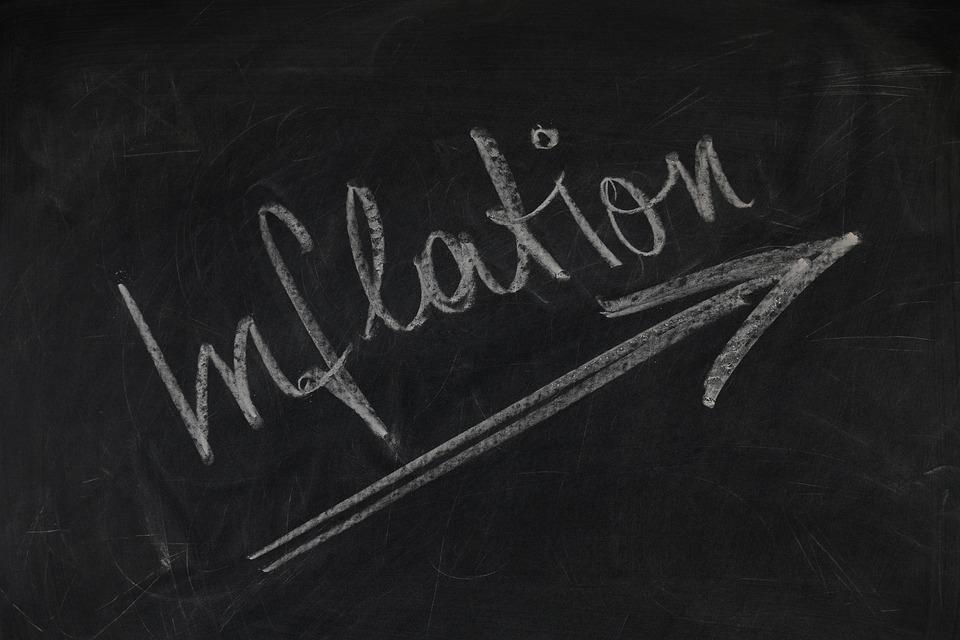Inflation Is Still Hot And The Fed Isn’t Willing To Tame It

As inflation data comes in hotter than expected, markets are reassessing the outlook for rate cuts.
This week’s Consumer Price Index report showed the CPI rising 0.4% in February. That was the largest increase since last September. Higher gas prices and housing costs were major contributors.
On an annual basis, the CPI is now rising at a 3.2% rate – well above the Federal Reserve’s stated 2% inflation target.
Following the CPI release, the Producer Price Index also came in hotter than expected.
- Yahoo Finance Report: Hotter-than-expected inflation data continues to dent hopes that the Federal Reserve will cut interest rates in the coming months. (With) wholesale prices jumping 0.6% on the month, is higher than the 0.3% of a percent forecast.
- CNBC Report: February PPI headline number expected to be up 3/10 of a percent. Zoom, zoom, zoom, up double. Up 6/10 of a percent. That would be the hottest going back to, well, equals July of last year. To find a higher number, you're going back to June of '22.
- CBS News Report: Inflation came in just a bit hotter than expected in February. The Labor Department says consumer prices are up more than 3% over the last year. They increased 4/10 of a percent from January to February, which means it's up slightly. Housing and gasoline costs contributed to more than 60% of those increases.
Far from being in a clear trend lower, inflation is proving to be sticky. It may even be on a path higher in the months ahead. Recent price action in the gold market and commodities markets would suggest that higher manufacturing and consumer costs are coming down the pipeline.
A downturn in the U.S. dollar on foreign exchange markets could exacerbate price inflation.
For years, Federal Reserve chairman Jerome Powell has publicly declared an inflation target of 2%. But some voices in Congress and within the Fed itself are calling for that target to be lifted. Raising interest rates and restricting currency supply growth in order to tame inflation would inflict too much pain on borrowers and the broader economy, they say.
Rather than admit the Fed can’t or won’t necessarily meet its 2% inflation objective, Powell seems to be subtly redefining the objective. He is talking about progress toward the 2% target as being sufficient to justify a shift toward interest rate cuts and looser monetary policy.
Two percent inflation is something that may or may not actually be achieved at some indefinite time in the future. But Fed policymakers can always insist they’re on their way to achieving it…someday.
In the meantime, investors shouldn’t count on inflation ever coming down sustainably to as low as 2%. And even if it does according to official calculations, the reported inflation rate may not reflect the full extent of real-world inflation as experienced by typical households.
The decline in the U.S. dollar’s purchasing power will ultimately be reflected in the gold price. Gold’s performance may not perfectly match inflation in any given year. But over the very long run, the precious metal can be counted on to retain its purchasing power – which means its price will continue to go up in terms of depreciating Federal Reserve notes.
Of course, gold recently broke out to new record nominal highs above $2,200 an ounce. This week the monetary metal pulled back from those highs on concerns that hot inflation may delay expected rate cuts from the Fed.
It's possible that we could see more backing and filling in the days ahead. Following a major breakout such as we’ve seen, it is normal and healthy for former resistance levels to get revisited before the uptrend continues.
More By This Author:
Restoring Sound Money: An Insightful Interview With Jp Cortez On The Bob Murphy Show
Will Silver Steal The Spotlight?
The Federal Budget Deficit Was Back To Normal In February - Massive



